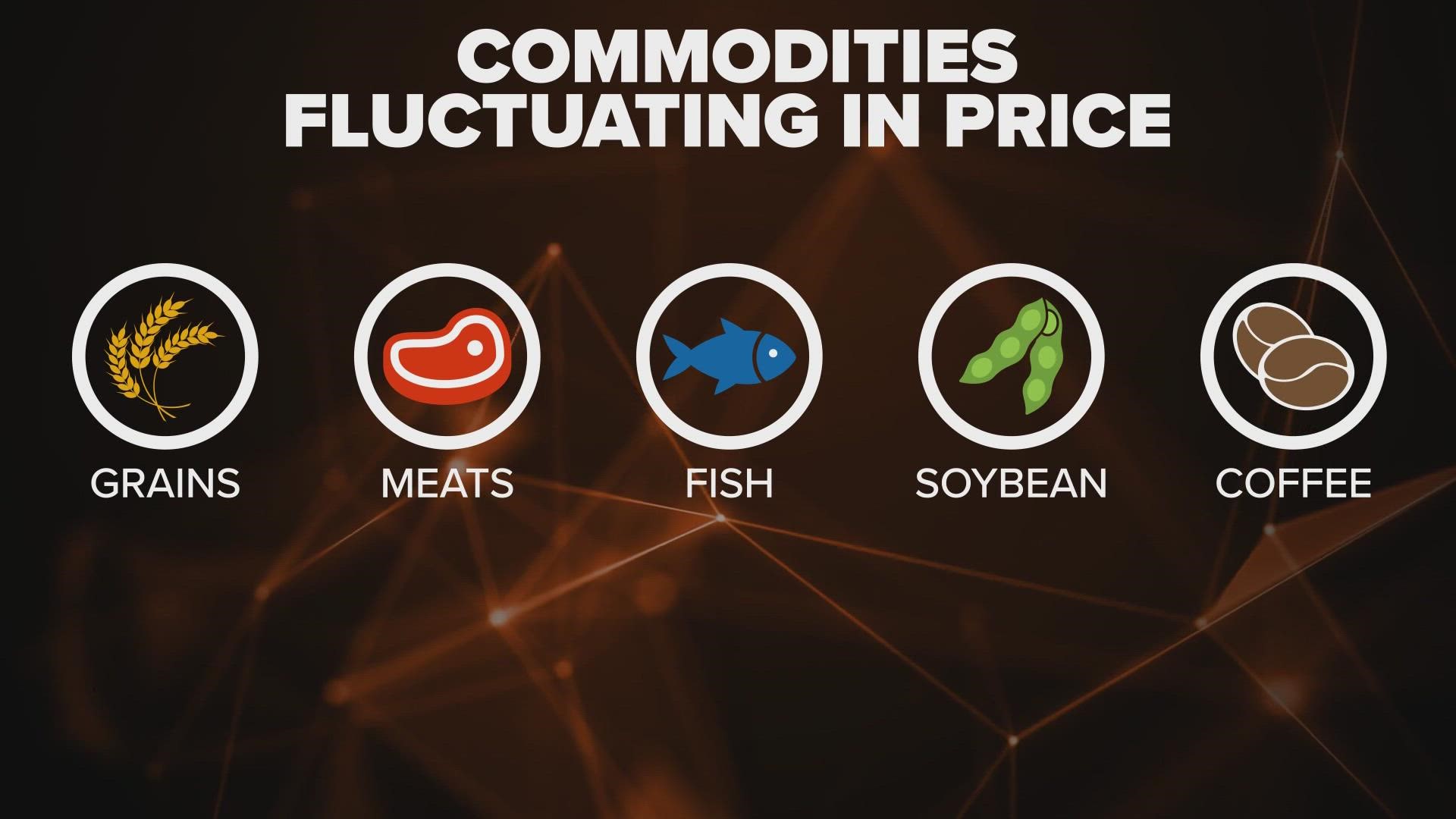PLANO, Texas — The latest CPI report released this month shows year-over-year inflation slowed, but it remains near a 40-year high despite the Federal Reserve raising rates aggressively to bring inflation down to normal levels.
Consumer prices are up 7.7% over the year ending in October, but that’s a drop from 8.2% in September and below 8% for the first time since February.
As Texans continue to pay more on just about everything, families are feeling the effects at the grocery store. As grocery prices rise, so do the number of people in North Texas who need help.
“We’re having to purchase more food than we ever had before,” said Erica Yaeger, with the North Texas Food Bank.
The North Texas Food Bank is helping more families now than they did at the height of the pandemic, and for many, it’s their first time getting help.
“Budgets are stretched, and people are having to make tough choices between food, utilities and transportation,” said Yaeger.
It also has people questioning— “Will food prices ever go down?” Texas economist Dr. Ray Perryman says it depends on what you buy.
“While we’ll see the rate of inflation come way down, some of the prices that have been escalated now will remain at these levels or close to these levels moving forward. A big exception to that are things that are closely tied to commodity prices which is most of our food products,” said Dr. Perryman with The Perryman Group.
Commodities fluctuating in price include grains, meats, fish, soybean and coffee. But the price for items like toothpaste tend to stabilize.
Here’s why you’re paying more at the grocery store: The pandemic triggered higher food production and transportation costs, damaging weather affected crops, Russia invaded Ukraine, there’s a shortage or workers, and now risks of a potential rail strike.
“There’s kind of a perfect storm of things going on now, some of which is being worked out over time,” said Perryman.
The domino effect is a harsh reality for families who are scrambling to adjust their budget to get food on the table.
“It puts a bigger strain on the social service system, the needs of the food bank, the needs of health care go up sometimes,” explained Perryman.
It’s not just families; food pantries are struggling too. Big companies have limited donations due to higher costs. Now, volunteers are doing what they can to keep shelves stocked.
Overall, Perryman says we’re making progress, “Most of the trucks are running now, the ports are running double shifts and things are getting into the country.”
And as we near the end of 2022, there’s optimism the economy will improve in the coming months.

